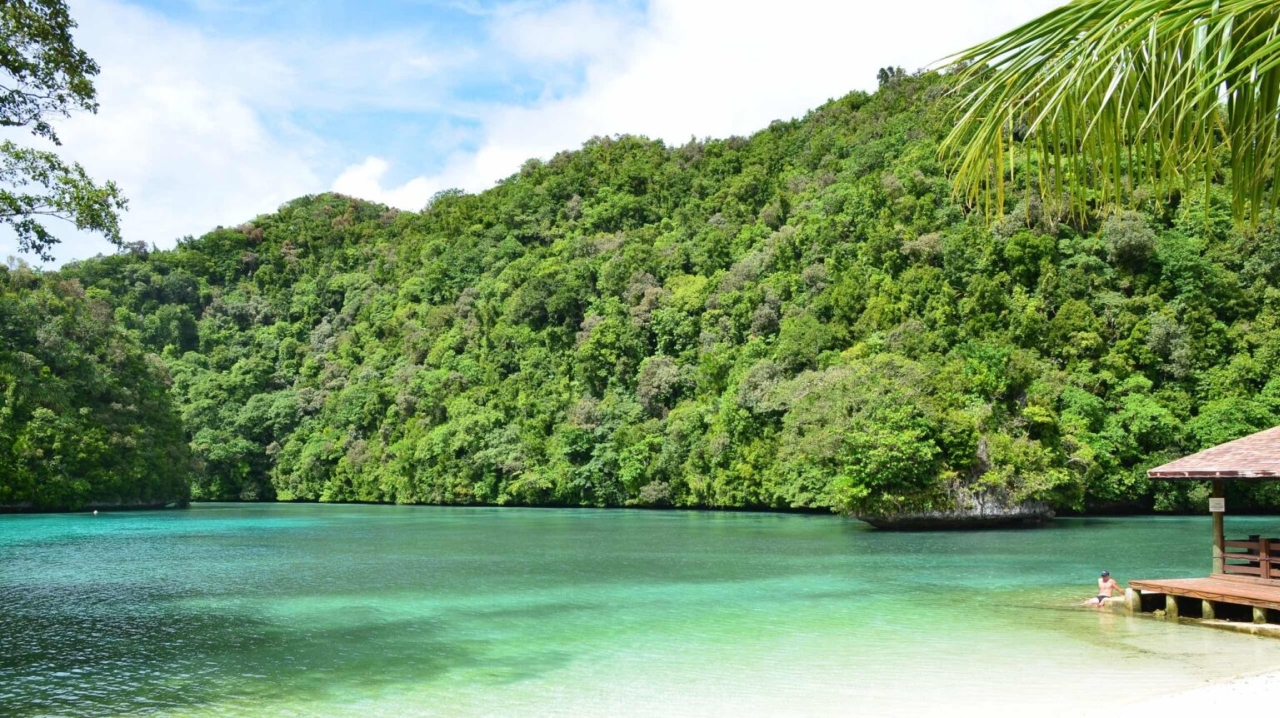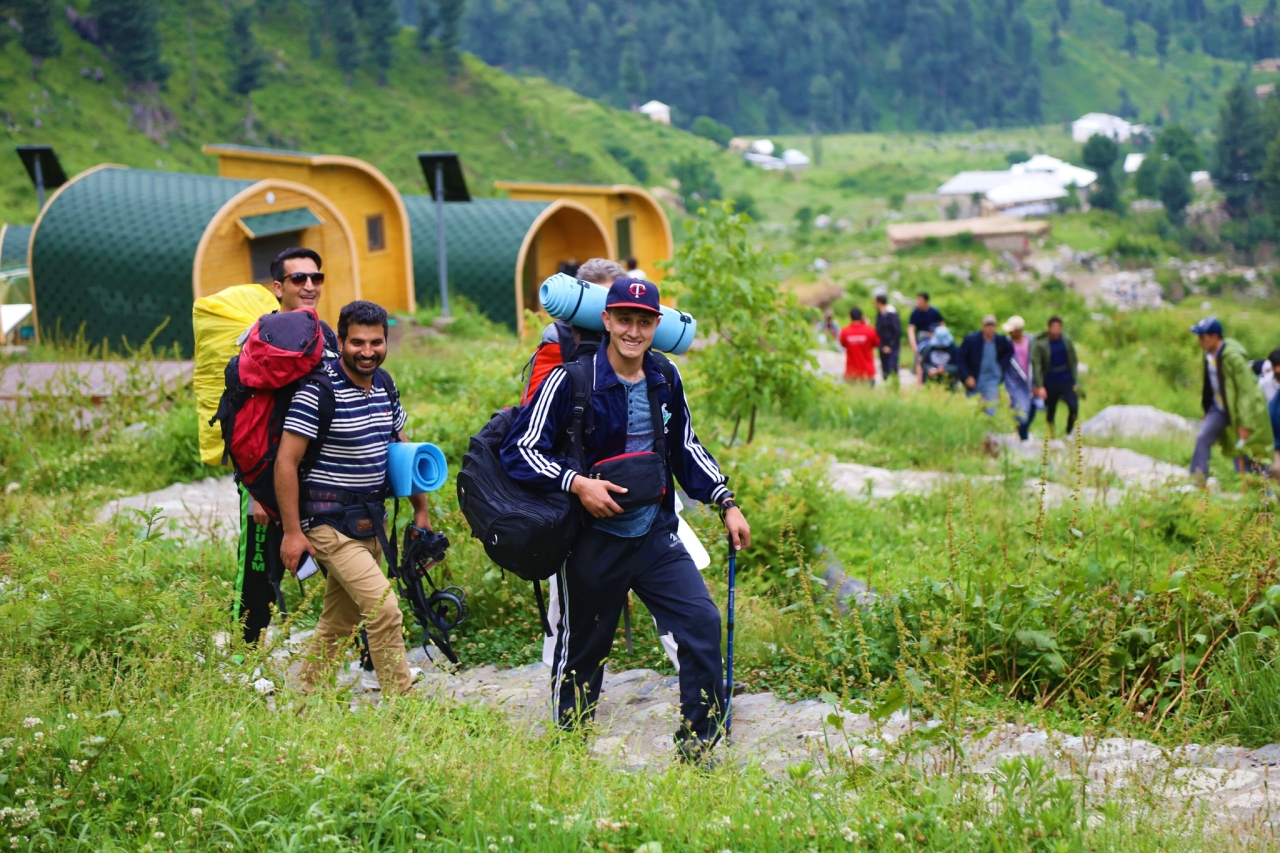Explore the World Sustainably with These Green Travel Tips
You may follow green living at home, but what about while traveling?
Almost half of the people on this planet like to travel and explore new places and cultures. While that was absolutely fine three decades ago, today, the tourism industry is among the biggest carbon emitters. The carbon footprint of modern travelers is a thing of worry as we are living in the age of climate emergency and mass extinction, and therefore, each responsible travel has become an absolute necessity.
Although traveling has numerous benefits, the travel mode, food, lodging, and other tourism activities can be very harmful to the environment. According to a 2018 study, published in the journal Nature Climate Change, the tourism industry accounts for 8 percent of the global carbon emissions. Meanwhile, David Suzuki Foundation estimates that a quarter of emissions will come from air travel by 2050.
In the light of these current and future projections of how traveling is impacting the environment, it is crucial to reduce travel emissions. But how can you do that? What is sustainable tourism or ecotourism? What do you mean by ‘green travel’ and does it help?
Below you will find answers to all these questions, along with a guide to green travel. But before we dive into all that, let’s get a few terms straight that we will be talking about in this article. Slightly varying in definitions, all these are eco-friendly ways of traveling.

Image: Mr. Hudson Explores
Sustainable Tourism: It is a concept covering the complete travel experience, addressing socio-economic and environmental concerns. It aims to lessen the negative impacts of tourism and increase the positive ones.
The UN Environment Program and UN World Tourism Organization define sustainable tourism as “tourism that takes full account of its current and future economic, social and environmental impacts, addressing the needs of visitors, the industry, the environment, and host communities.”
Ecotourism: Ecotourism involves “responsible travel to natural areas that conserve the environment, sustains the wellbeing of local people and involves interpretation and education.” This type of eco-travel aims to conserve ecosystems, and communities and promote sustainable travel.
Ecotourism works on the principles of bringing nature and wildlife conservationists, local communities, and the responsible travel industry together to ensure long-term sustainability and environmental protection.
Green Travel: Green travel allows you to get involved with communities and conservation projects that respect the environment through responsible behaviors and counterbalances or reduce the negative impacts of the industry. It helps travel businesses and consumers in offsetting their carbon emissions.
By following a wide variety of activities that primarily focus on reducing, reusing, and recycling. Green travel aids in wildlife conservation and communities at risk.
Responsible Travel: It relates to travel that respects and has positive effects on the destination and its inhabitants. Responsible travel “means assessing our impact on the environment and local cultures and economics – and acting to make that impact as positive as possible.”

It includes being socially and culturally aware and responsible about your footprint while traveling. For instance, you can refrain from using single-use plastics and discarding your waste irresponsibly.
Tips For Green Travel
Green travel refers to responsible travel practices that focus on environmental, social, and economic sustainability. It can also indicate ecotourism that includes responsible travel specifically to natural areas. Here are some tips you can follow for green travel.
Pick Sustainable Destinations
Picking a sustainable destination is a key part of traveling green. You can choose places that are doing crucial conservation work or prioritize sustainability through renewable energy and waste management. A green destination focuses on respecting nature, wildlife, culture, and the economic welfare of locals.

Image: David Kirkland Photography
While no destination will be 100 percent sustainable in every aspect, many nations, cities, and towns across the planet are working toward full sustainability with a collaborative effort of citizens, businesses, and tourists. The top green destinations include Palau, Rwanda, Costa Rica, and Helsinki among many others.
Go With Tour Companies Operating Sustainably
Tour operators have as much impact on the environment as tourists. While individuals can do their part in reducing travel footprint, tour operators give customers an opportunity to make sustainably-conscious choices as they go places. Therefore, you should always choose tour companies that are operating sustainably.
However, you must do due diligence regarding whether a company is actually observing sustainable practices in its operations or not. Most companies that are green will have a dedicated section for their eco-friendly ways on their websites. To be sure, you can check whether a company is associated with local suppliers based on sustainability standards, operations supporting renewable energy, and green transportation.
Pack Light
You should always pack mindfully to lessen your environmental impact. It is absolutely normal to want to buy new things or souvenirs while exploring new destinations, but you should resist the temptation of consumerism as it can increase your trip’s environmental impact. Moreover, you can procure secondhand items.

Image: Tortuga Backpacks
You can also use portable and reusable travel-sized toiletries instead of buying new ones for each trip. It is important to pack waste-free or reusable supplies to avoid purchasing single-use items such as water bottles, coffee mugs, reusable straws, silverware, napkins, and so on or invest in some collapsible options for these items.
Take Public Transportation
The air travel and shipping industries are two of the largest carbon emitters. If you want to decrease your travel footprint, you should opt-out to travel via air or cruises and seek public land transport. As air and sea travel use energy-intensive vessels, it is wise to use trains and buses. Single-occupancy vehicles are also not eco-friendly options.
Instead of taking flights to faraway destinations, you can take shorter trips to nearby locations. The carbon footprint of passengers aboard a cruise ship is nearly three times higher than it would be on land transport, whereas commercial flight takeoffs and landings need more power than cruising. Therefore, you should compare the energy consumption of your transport methods before booking it.
Choose Eco-Friendly Lodgings
With an increase in awareness regarding the environmental impacts of the tourism industry, eco-friendly and sustainable accommodations are growing in numbers. Eco-hotels have emerged as a ray of hope as they are built to minimize their environmental impact. By functioning on the principles of green living, including renewable energy, organic produce, and recycling practices.

Image: Time
Through their efforts to conserve the environment, eco-friendly lodgings attract eco-conscious travelers and help the planet. You can research such accommodation options in your choice of holiday destination. Look for places that utilize green energy, support local businesses, and promote sustainability to reduce their carbon footprint.
Offset Your Carbon Emissions
Carbon offsets are a way for individuals and companies to offset their emissions through projects that remove carbon from the environment. For instance, offset projects can include tree-plantation drives to create carbon sinks, make buildings energy-efficient, and invest in renewable energy projects such as building wind farms.
However, these carbon offset projects are not always legitimate, which is why you must look for permanent, verifiable, and meaningful projects. For example, it can take years before a tree matures enough to capture the amount of carbon promised when you buy an offset. You can find projects evaluated by trusted organizations that vet offset projects, including the Climate Action Reserve, Cool Effect, and Gold Standard.
Eliminate Single-Use Plastics
Plastic pollution is one of the biggest man-made foes of the planet. Undetectable by the naked eye, the microplastics and nanoplastic particles can enter living organisms and cause significant harm, including death. If you want to opt for green living to better the environment, you should eliminate single-use plastics from your life.

Image: Steelys Drinkware
You can use reusable cutlery, and reusable water bottles, avoid plastic bags for shopping, and say no to plastic straws even during your travels. You can carry reusable and refillable containers for toiletries.
Save Water and Electricity
Water and electricity are among the precious resources and have a huge impact on the environment. Their excessive and careless usage can burden natural reserves and fuel global warming. Therefore, you must utilize these resources mindfully and conserve them as much as possible while you are traveling.
Turn off water and electricity when not using them. Be more energy-efficient and unplug your devices when they are not charging. Taking shorter showers and turning the water off when brushing your teeth are among the few energy-efficient tips you can follow at home and while traveling.
Support Locals
By supporting local businesses in your travel destination you are strengthening the local economies and lessening the carbon footprint of your souvenir or food purchases on vacations. This way you ensure that tourism funds remain in the local community. You can eat local food, consult and hire local guides, and buy from regional artisans.

Image: UNDP
Tour operators can also encourage their customers to support the local economy while providing a great travel experience. Moreover, you can hire local guides and drivers, book locally-owned lodgings, buy local items, donate to local projects, and so on.
Respect Ecosystems and Wildlife
While traveling across the world, you can pick experiences that support ecosystems and wildlife conservation efforts. For example, if you are visiting a marine protected area, you can engage in activities that are supported by nonprofits or groups preserving land, ecology, and animals.
If you are out in the wilderness, you should leave the place better than you found it. Moreover, avoiding wildfire encounters would be wise to evade man-animal conflicts.


